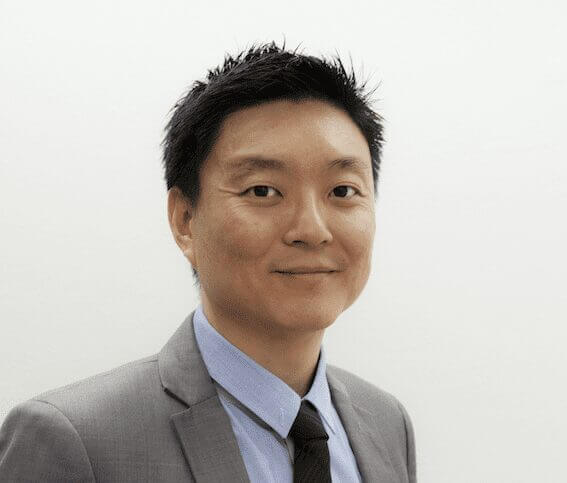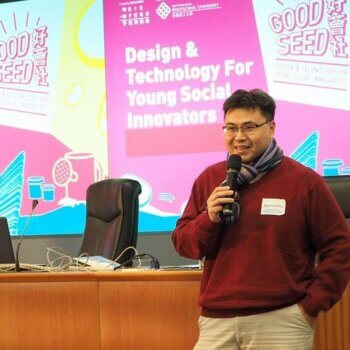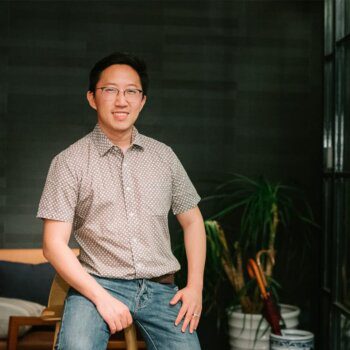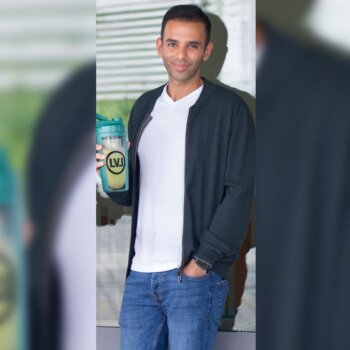Edwin Tay is the CEO and co-founder of easyuni.com – Asia’s leading Education Portal, dedicated to connect students with Universities Globally. EasyUni attracts students from 202 countries applying into Universities in 20 countries worldwide. It has clients from 17 countries, which include brand names such as University of London, Curtin, Singapore Management University, Monash, British Council, Nottingham, Heriot-Watt and more.
Prior to that he co-founded a digital agency & e-marketing software company – NetInfinium Corporation, which he has since sold to a public listed company. In there, he led the company to winning multiple awards including Red Herring Asia Top 100, Deloitte Asia Pacific Top 500 Fastest Growing IT Company (2005/2006), AWSJ Asia Innovations Awards, MC2 Creative Awards and more.
Edwin is an Endeavor Entrepreneur – a testament to his entrepreneurship capability. He is an active mentor for Founders Institute, Cradle Coach & Grow Program and NEN Wadhwani. He gives regular talks especially in the topic of e-marketing and entrepreneurship.
In your own words what is EasyUni?
EasyUni is a multisided platform that enables lesser known universities and Asian students to efficiently and conveniently connect online despite time and distance constraints. EasyUni serves as a one-stop-shop to find and apply to the right university while removing the costs of using a college counselor, and the time spent attending college fairs and trawling countless websites. Students and parents can search and compare universities and courses, and apply for free through EasyUni. To date, EasyUni’s portal lists over 2,000 universities, 3,000 scholarships, and 70,000 courses in 20 countries. Simultaneously, EasyUni helps universities add Asian students to their student bodies while reducing student acquisition costs. EasyUni generates student traffic on its portals through its close proximity to prospective students and its local market knowledge. Universities pay EasyUni to generate and verify student leads, applications, and placements through premium locations on its ten country portals. They can also pay EasyUni to manage their event and social media presence locally in order to increase their brand exposure in the region.
How did you come up with the idea of EasyUni?
The idea for EasyUni surfaced in 2008, when me and my co-founder noticed how our niece and nephew struggled to choose a suitable university and area of study. We saw the need for a portal that would provide relevant, accurate, and comprehensive information on universities and courses available worldwide.
Could you walk us through the process of starting up EasyUni?
I was first exposed to entrepreneurship when I joined Amway, a multinational that develops products and sells via direct sales, after graduating from the University of Sains Malaysia with a Materials Engineering degree. As a Research Engineer, I learned how to develop, network, and sell a variety of products. Leaving Amway after two years, I co-founded a digital agency, NetInfinium Corp, which went on to win multiple awards including the Red Herring Asia Top 100 and Deloitte Asia Pacific’s Top 500 Fastest Growing IT Companies for 2005-2006. I grew the company until 2011, after which we successfully exited via trade sale to a publicly listed company. Partnering up with my co-founder and pooling together some money to start EasyUni, we outsourced the development of our first minimum viable product over the next two years. We both worked on this idea on a part time basis. With the help of government grants, EasyUni hired its first employees and launched its portal in December 2010.
Did you encounter any particular difficulties during startup and if so, how did you guys overcome it?
Similar to my previous startup – it was an exciting and challenging. Together with my co-founder, we brainstormed all the time to come out with the best ideas for everything, from marketing to business model, to sales. We also regularly talked to as many stakeholders as we could i.e. students, parents, teachers, Universities and Colleges to get feedbacks and ideas
We knew very early on that going regional then global; as quick as possible is the mission that we need to accomplish quickly. Hence all our strategies was pointing towards scalability and international acceptance. A lot of hustling was carried out at the early stages. Currently we have a team of 25 person from 7 different nationalities and still growing. They are the amazing people that helps EasyUni be where it is today.
How have you been developing EasyUni since startup?
After coming out with the minimal viable product, we quickly sought market validation by meeting all stakeholders (partners, potential clients, students and parents). It took us about a year and 3 pivots before we found a suitable and scalable business model. From then on, its about getting as large market share as we can in our home country Malaysia. We quickly overtook the incumbent competitor and currently working to increase further our dominance and at the same time, expanding our presence in a few other Asian countries.
What kind of feedback did you get for EasyUni so far?
Parents and students we talked to have consistently mentioned that the concept of EasyUni is not only helpful but also effective and timely. With the ubiquities of Internet and parents being busy with work, students typically prefer to do their research via the Internet. Our clients the universities are also putting in more marketing budget onto the online media at the expense of offline media.
What is your strategy against your competition?
There are a few local and overseas competitors and we view them positively. I personally welcome competition as it keeps the industry healthy. Plus it’s a great motivation point for our team. We don’t typically watch our back for competition constantly. Rather we look forward and think of more innovative ways on how we can add more value to both our students and universities.
Have you developed any industry insights that you could share?
Higher education service providers all around the world are facing intense pressure with the mushrooming of institutions. It doesn’t help when their respective government starts tightening rules for institutions to bring in foreign students (which generally brings in a large amount of revenue) and cutting down grants. We foresee consolidation would be a trend moving forward with smaller institutions either merging or being acquired by larger groups. The good news is that the number of students going into higher education is consistently on the rise every year, in tandem with the rise of population and middle class all around the world
What is the future of the industry and how do you plan to stay relevant in this industry?
We believe that in the future ALL university and college applications will be done online, thus disrupting the current conventional method of offline form filling or personal application via university registration offices. We believe, students in the future would be less dependant on agents and counselors. Do-it-yourself (DIY) will be the mainstay when students search/compare and apply. EasyUni wants to be at the forefront of this disruption by being the portal to go to when students all over the world looks & apply to a University of their choice.
What do you think about being an entrepreneur in Asia? Is it harder or easier, why?
Asian entrepreneurs typically faced a few shortcomings relative to those in the West (such as Silicon Valley). Funding and mature support structure are some of them. However I feel that there’s never been a better time to be an entrepreneur in Asia. With a large catchment of youthful and growing population, Asia is now one of a few bright spots for commerce in the world with a potential to be the trendsetter in the next decade. We see large amount of old money from Europe and the Americas flowing into Asia, funding new technologies and startups. Without a doubt, Asia is where the opportunity lies in the coming decade.
What is your opinion on Asian entrepreneurship vs Western entrepreneurship?
Speaking strictly on Internet and technology startup entrepreneur angle – some Asian tech entrepreneurs tend to get influenced by Valley style of running a company. Whilst a large number of their best practices can be replicated here in Asia, there are many that might not be suitable due to Asian culture and market constraints. On the flip side, we also begin to see many Western tech entrepreneurs making their way into Asia, bringing with them their western experience and processes, only to find that not all can be replicated as-is.
What is your definition of success?
We are successful when we played a role in preventing students from making a wrong choice in choosing their university or course. We are most proud when we hear stories of how EasyUni played a positive role and touched our students lives. We regularly get emails from students and/or their parents thanking us for helping them out and preventing them from making mistakes in choosing their course or universities. We typically share those emails out to all our staffs – just to show everyone that all their effort and work in making EasyUni the leading education portal means a lot to a lot of our stakeholders. Because of this, we also are able to attract talents. We have some staffs who tells us that they have turned down much better offers and decided to join us instead because they believed in our vision of helping students.
Why did you decide to become an entrepreneur?
Right after I graduated from university, I joined Amway as a distributor. They taught me to fight for what I wanted in life. They also ignited the entrepreneurism in me. Whilst I did not gain much success in Amway, it certainly kindled my interest in becoming an entrepreneur.
In your opinion, what are the keys to entrepreneurial success?
Grit. The ability to continue on stronger, despite the many trials and tribulations. There are times when you feel lonely and the people that you rely on for help and support – did the opposite. Luckily for me, I have other support system in place where I could ask for help and advise. I now surround myself with positive thinking and solid individuals that have either done it before and/or are able to ask great questions leading me to the answers.
Any parting words of wisdom for entrepreneurs out there from your personal experience?
Settle your early funding early on and get it out of your way (either by roping in a good investor or via Grants) so that you can then concentrate on building a solid base for your company
Talk to as many stakeholders and most importantly your potential clients. Listen well as they will reveal their pain points (sometimes not directly) and giving you ideas on where your product/services should be heading
Unless you have loads of cash and time, don’t try to change the world or disrupt the industry, early on. Just stick to simple tried and tested business models (that your competitors are already doing). Yes, in this case, building a better mousetrap is actually a good idea. Not everything needs to be scalable from the beginning. In fact more often than not, you would need to do unscalable activities before it can be built on to be scalable in the future.
Connect
Web: https://easyuni.com
LinkedIn: https://my.linkedin.com/in/tayedwin






























